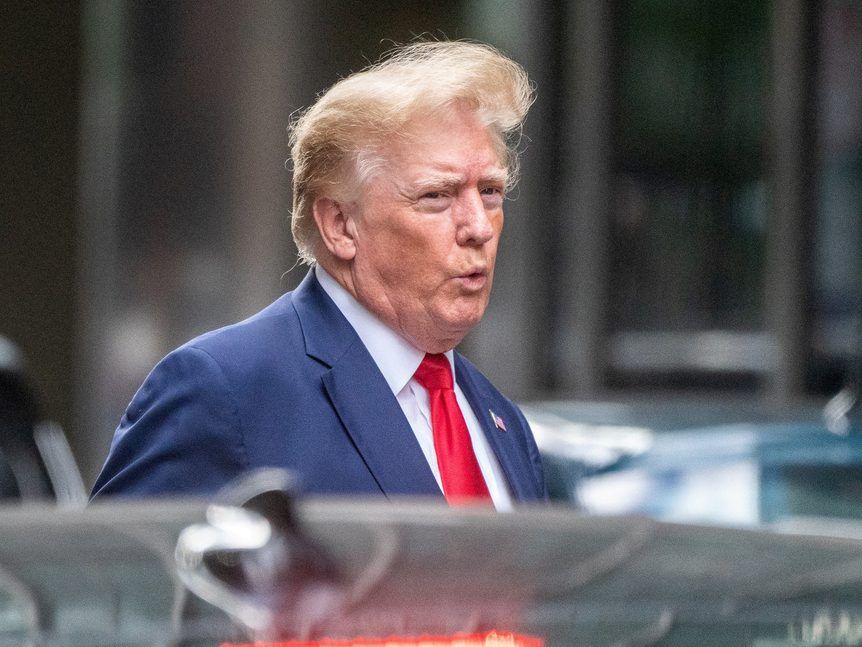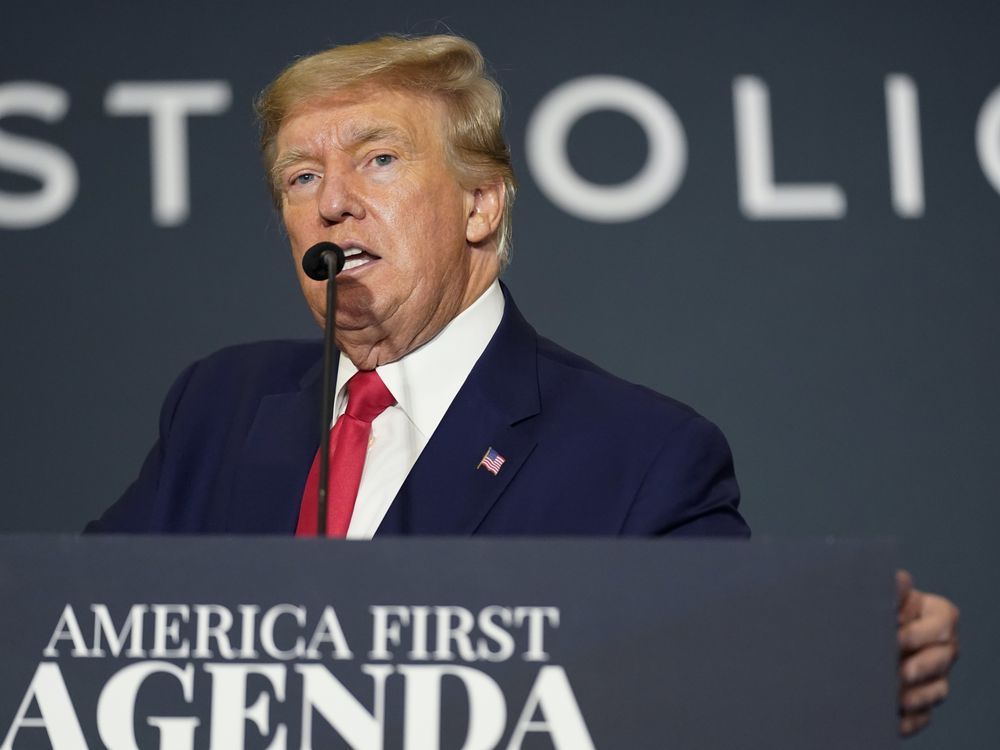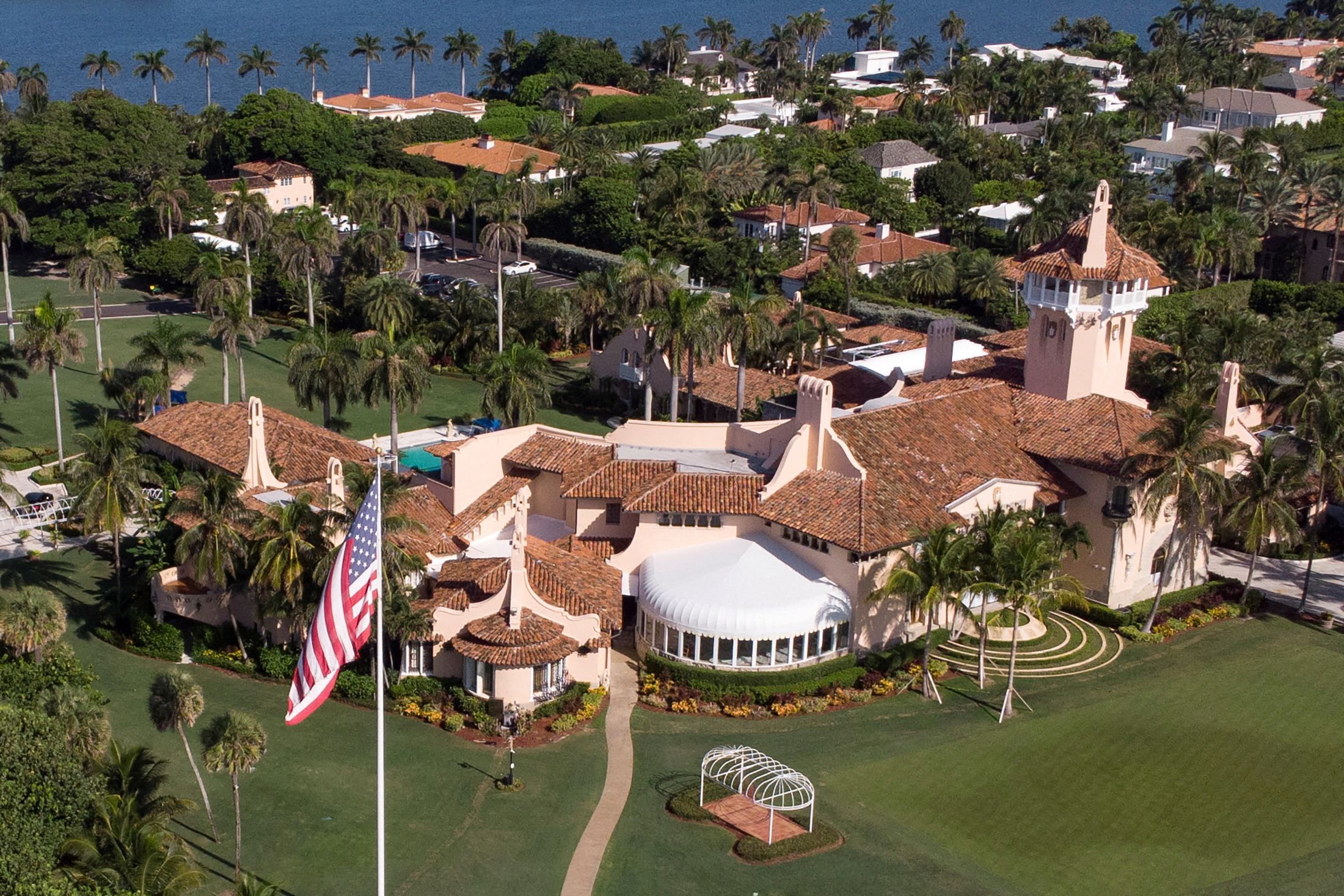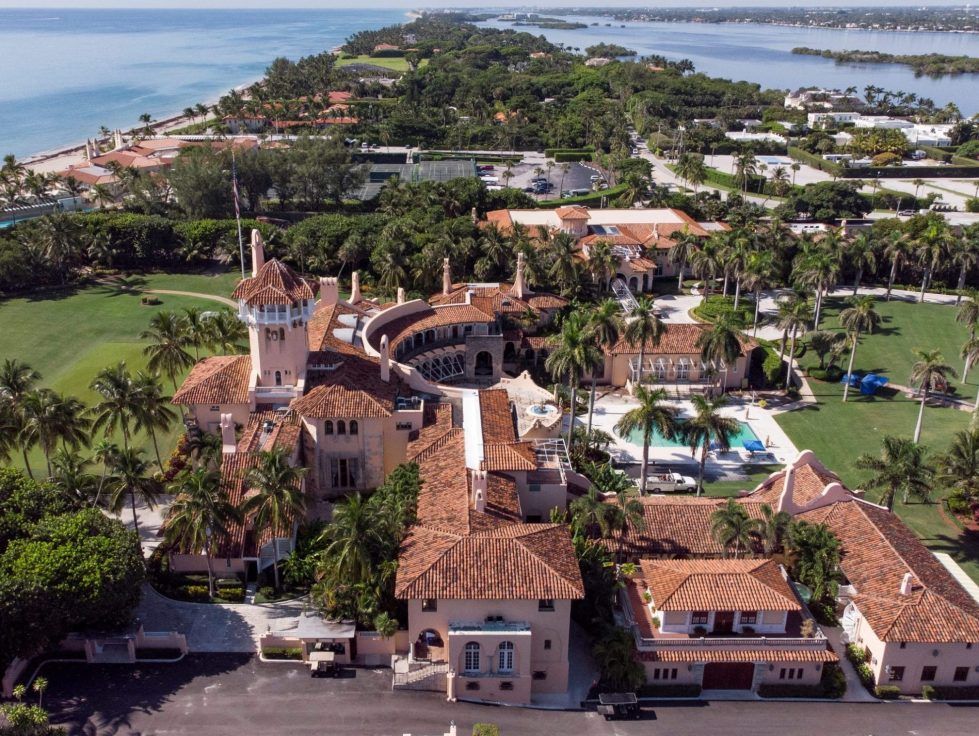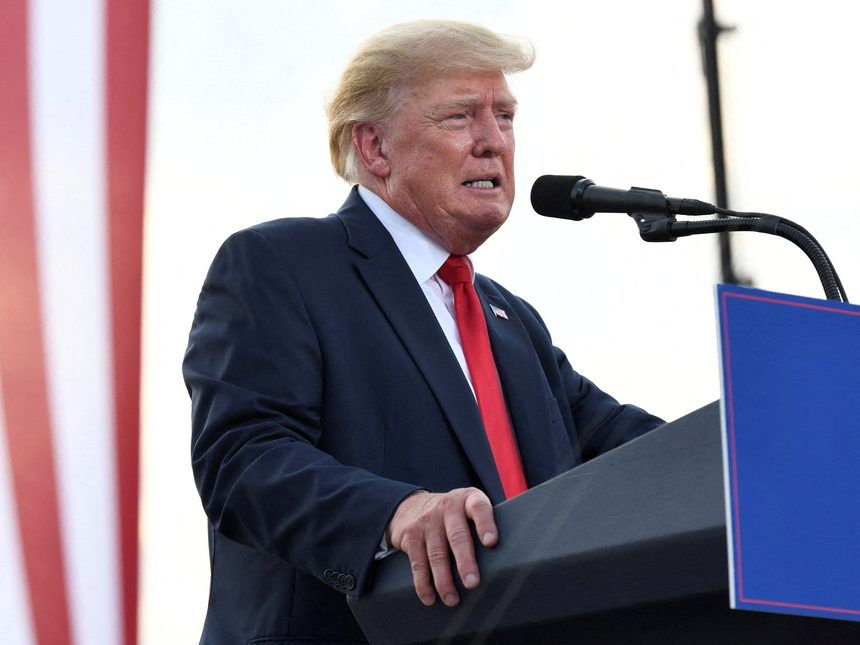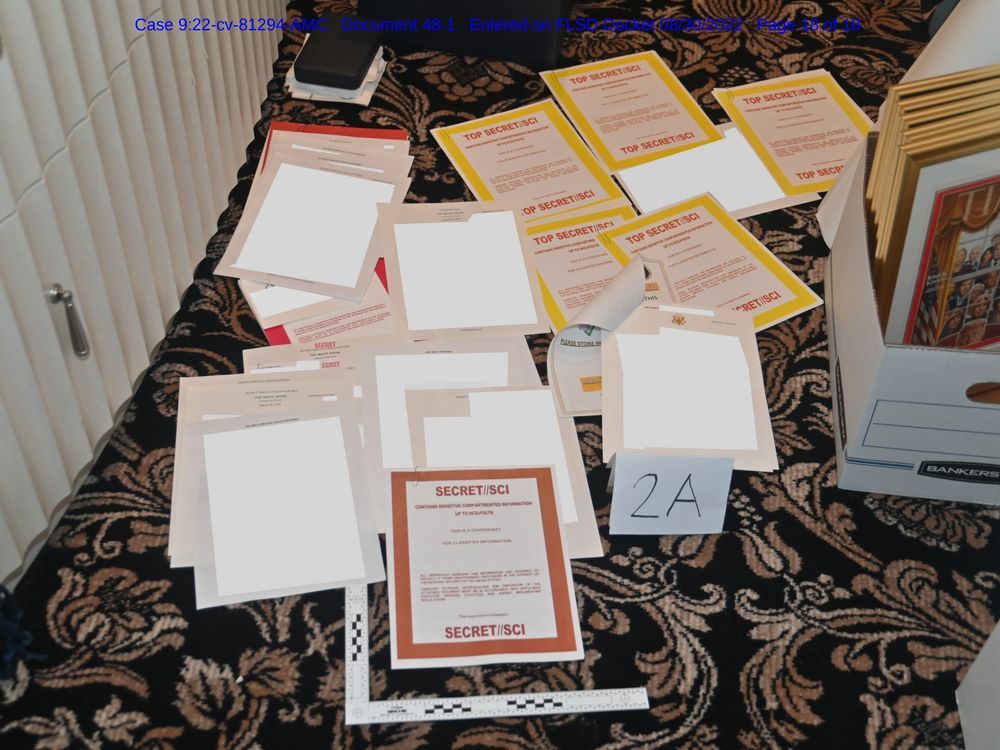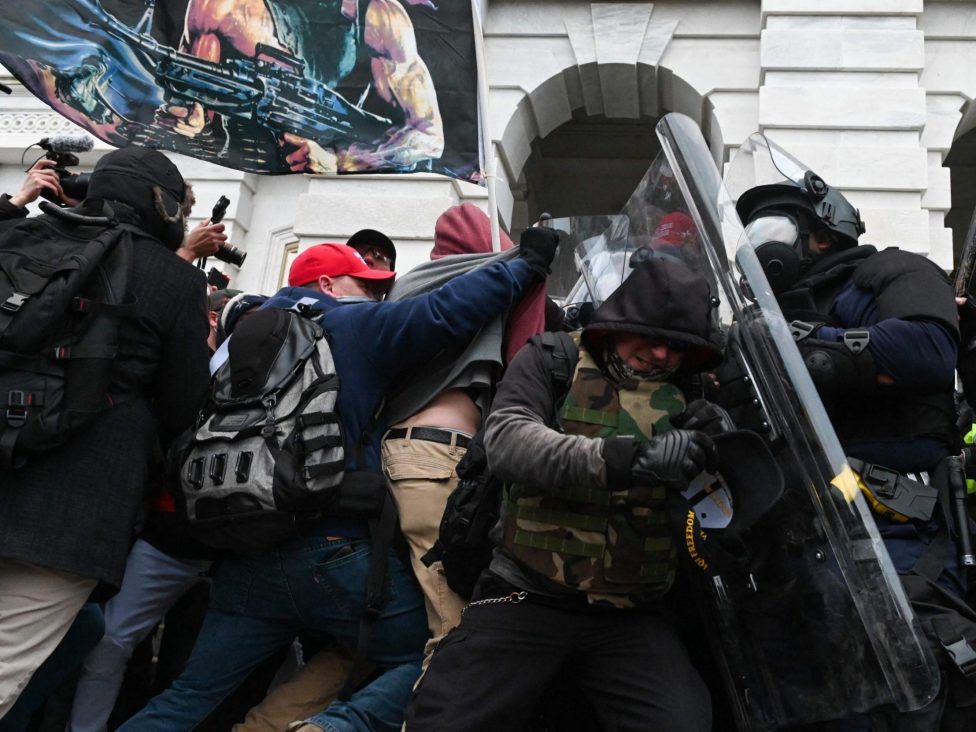Possible plea deal for Montreal woman who allegedly tried to poison Trump
A U.S. federal prosecutor says negotiations are underway for an agreement to settle the charges against Pascale Ferrier.
Author of the article aul Cherry • Montreal Gazette
aul Cherry • Montreal Gazette
Publishing date:Aug 26, 2022 • 10 hours ago • 2 minute read • Join the conversation
Pascale Ferrier has been detained since her arrest on Sept. 20, 2020 at a border crossing in Buffalo, N.Y.
Pascale Ferrier has been detained since her arrest on Sept. 20, 2020 at a border crossing in Buffalo, N.Y. PHOTO BY HIDALGO COUNTY SHERIFF'S OFFICE /The Associated Press
A St-Hubert woman arrested almost two years ago after poison-laced letters were sent to then-U.S. president Donald Trump and Texas law enforcement officials may see her cases combined while she considers a possible plea deal.
Federal prosecutor Michael Friedman on Friday informed U.S. District Court Judge Dabney Friedrich in Washington, D.C. of the development in the case against Pascale Ferrier, 55, who faces three charges, including threatening to kill the president.
On Sept. 20, 2020, as the FBI was trying to determine who had sent a letter laced with ricin and addressed to Trump at the White House, Ferrier showed up at a U.S. border crossing at the Peace Bridge in Buffalo, N.Y. Border guards searched her vehicle and found a loaded semi-automatic handgun, a knife, a stun gun, a collapsible baton and 294 rounds of ammunition in a backpack.
Ferrier also faces charges in a U.S. district court in Texas, where she is alleged to have sent six ricin-laced letters to police officers and prison officials.
She had been briefly detained in Texas before 2020, and the letters are alleged to have been mailed to officials involved in her case. Her fingerprints were found on four of the six letters.
The letter destined for Trump was intercepted and never delivered to the White House.
“Both of these U.S. attorney offices, here in D.C. and also in the southern district of Texas, have extended draft plea material” to Ferrier’s lawyer, Friedman said, adding negotiations toward a possible guilty plea continue.
Friedman said Ferrier’s lawyer recently made requests to alter the terms of what has been offered — “sort of a global-in-nature plea offer that would resolve both of these cases (and) that would have the Texas case transferred” to D.C.
The prosecutor said a plea agreement may be ready by late September.
Also on Friday, the judge rejected Ferrier’s bid for the return of $166 in Canadian currency that was seized when she was arrested. That money was seized along with more than US$2,200.
The money is considered evidence of Ferrier’s potential plans if she had entered the U.S. In the letter to Trump, she is alleged to have written: “This gift is in this letter. If it doesn’t work, I’ll find (sic) better recipe for another poison, or I might use my gun when I’m able to come.”
Ferrier argued the Canadian money should not be considered as evidence of what might have happened if she entered the U.S. She argued she needs the money to purchase toiletries at the commissary where she is detained and to make Zoom calls with her family.
“I’m certainly sympathetic to Mrs. Ferrier’s desire to have money to spend in prison for Zoom calls and commissary purchases,” Friedrich said. “But the government’s reasons for keeping the money are stronger than Mrs. Ferrier’s.”
pcherry@postmedia.com

 torontosun.com
torontosun.com
A U.S. federal prosecutor says negotiations are underway for an agreement to settle the charges against Pascale Ferrier.
Author of the article
Publishing date:Aug 26, 2022 • 10 hours ago • 2 minute read • Join the conversation
Pascale Ferrier has been detained since her arrest on Sept. 20, 2020 at a border crossing in Buffalo, N.Y.
Pascale Ferrier has been detained since her arrest on Sept. 20, 2020 at a border crossing in Buffalo, N.Y. PHOTO BY HIDALGO COUNTY SHERIFF'S OFFICE /The Associated Press
A St-Hubert woman arrested almost two years ago after poison-laced letters were sent to then-U.S. president Donald Trump and Texas law enforcement officials may see her cases combined while she considers a possible plea deal.
Federal prosecutor Michael Friedman on Friday informed U.S. District Court Judge Dabney Friedrich in Washington, D.C. of the development in the case against Pascale Ferrier, 55, who faces three charges, including threatening to kill the president.
On Sept. 20, 2020, as the FBI was trying to determine who had sent a letter laced with ricin and addressed to Trump at the White House, Ferrier showed up at a U.S. border crossing at the Peace Bridge in Buffalo, N.Y. Border guards searched her vehicle and found a loaded semi-automatic handgun, a knife, a stun gun, a collapsible baton and 294 rounds of ammunition in a backpack.
Ferrier also faces charges in a U.S. district court in Texas, where she is alleged to have sent six ricin-laced letters to police officers and prison officials.
She had been briefly detained in Texas before 2020, and the letters are alleged to have been mailed to officials involved in her case. Her fingerprints were found on four of the six letters.
The letter destined for Trump was intercepted and never delivered to the White House.
“Both of these U.S. attorney offices, here in D.C. and also in the southern district of Texas, have extended draft plea material” to Ferrier’s lawyer, Friedman said, adding negotiations toward a possible guilty plea continue.
Friedman said Ferrier’s lawyer recently made requests to alter the terms of what has been offered — “sort of a global-in-nature plea offer that would resolve both of these cases (and) that would have the Texas case transferred” to D.C.
The prosecutor said a plea agreement may be ready by late September.
Also on Friday, the judge rejected Ferrier’s bid for the return of $166 in Canadian currency that was seized when she was arrested. That money was seized along with more than US$2,200.
The money is considered evidence of Ferrier’s potential plans if she had entered the U.S. In the letter to Trump, she is alleged to have written: “This gift is in this letter. If it doesn’t work, I’ll find (sic) better recipe for another poison, or I might use my gun when I’m able to come.”
Ferrier argued the Canadian money should not be considered as evidence of what might have happened if she entered the U.S. She argued she needs the money to purchase toiletries at the commissary where she is detained and to make Zoom calls with her family.
“I’m certainly sympathetic to Mrs. Ferrier’s desire to have money to spend in prison for Zoom calls and commissary purchases,” Friedrich said. “But the government’s reasons for keeping the money are stronger than Mrs. Ferrier’s.”
pcherry@postmedia.com

Cases may be combined for St-Hubert woman who allegedly tried to poison Trump
A U.S. federal prosecutor says negotiations are underway for an agreement to settle the charges against Pascale Ferrier.
